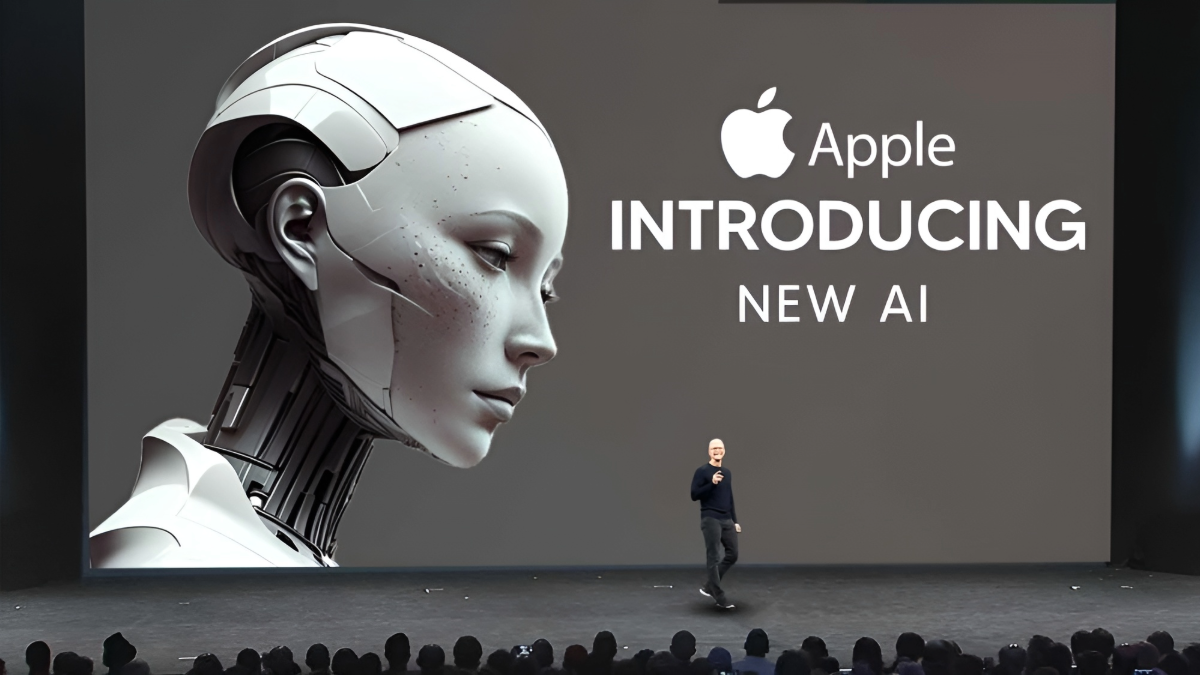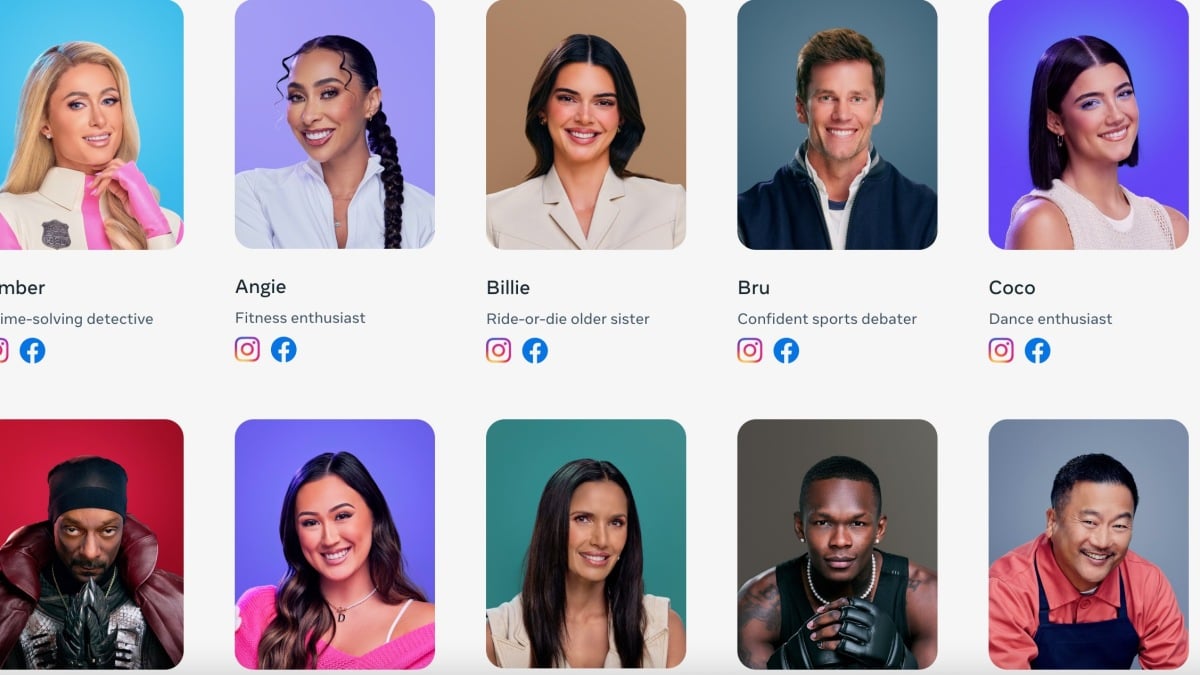Open your eyes and take in a transformed world.
Just four years ago, artificial intelligence seemed like a distant promise. Now, it’s reshaping every industry, from healthcare to education, altering lives in ways society is only beginning to understand.
Reality is the world will never be the same as it was before.
Adapting to this AI-driven reality isn’t optional – it’s essential.
AI has integrated itself into daily human lives, revolutionizing industries and shifting the boundaries of possibility.
This fall, Mercy University hosted the Fall ’24 AI/COMM conference, an exclusive event with a $600 ticket price.
The conference gathered leading innovators and CEOs from emerging AI companies, offering insights into AI’s rapid advancements and real-world applications across various sectors.
Olia Stasiuk, CEO of Bonzai AI, was among the speakers. Bonzai AI is a platform for creating interactive, AI-powered training videos from documents.
“We ultimately are a platform that allows you to create training courses for employees in just 15 minutes,” Stasiuk clarified.
According to Bonzai AI, companies can scale learning solutions globally, reducing content creation time by up to 97 percent. This is especially valuable in sectors with fast-evolving training needs. Additionally, it enables businesses to create multilingual courses from existing documents at a 99 percent lower cost than traditional training methods.
“Every industry is changing – my industry is education, so I think I’ve spent months trying to create a good quality training video, which cost thousands of dollars,” Stasiuks added.
Motivated by the goal of offering an affordable solution, Stasiuk developed the concept for Bonzai AI. The next challenge was to improve the efficiency of video creation with avatars while maximizing quality and cost-effectiveness.
In the field of AI, avatars serve as digital representations of users. They are typically generated by artificial intelligence to replicate their looks or behaviors.

Stasiuk’s company led the way in utilizing digital twins—precise replicas of individuals for video production. At the conference, she showcased her digital twin, which was so lifelike that it was nearly indistinguishable from the actual person, highlighting the remarkable advancements in AI-generated avatars.
As AI is revolutionizing various industries, it’s clear that healthcare is another area significantly influenced by this technology.
In fact, AI is driving impressive innovations in the evolving healthcare landscape. However, as Scott Snyder, the Chief Digital Officer at Eversana Corp, emphasized during the conference, such advancements require a thoughtful and responsible application to ensure their effectiveness and ethical use in the industry.
“This is an iPhone moment for healthcare,” he emphasized.
AI has the potential to reshape patient experience by streamlining diagnosis, personalizing treatments, and improving overall accessibility. “So many amazing capabilities, but it’s also creating incredible expectations,” Snyder added.
AI applications like Abridge and Hippocratic AI are revolutionizing the medical field by streamlining processes and improving patient care.
Snyder highlighted Abridge, which uses advanced AI to transform clinical documentation. This enables doctors to reduce the time spent on administrative tasks and focus more on patient care. By automatically converting doctor-patient conversations into structured clinical notes, Abridge helps alleviate the burden of manual documentation, improving efficiency and accuracy.
“Fifty percent of doctors today.. are experiencing burnout. The current projection is that we will be about 124,000 physicians short in 2030 in this country. So we are headed towards a major choke point in healthcare,” Snyder comments.
How frightening would it be to lack doctors due to overly tedious documentation?
These applications are created to assist with burnout and enhance the patient experience. These apps empower patients by organizing and summarizing health insights.
However, Snyder emphasized the limitations of AI, particularly in mental health.
AI is a valuable tool, yet it cannot entirely substitute human caregivers, particularly in delicate realms such as mental health. Missteps can result in disastrous consequences if the technology is not applied correctly.
Snyder cautioned, “We’re going to see more times where we rush to AI tools that can help, but hybrid models with human oversight are essential.”
AI in healthcare holds great promise, but human oversight is essential to ensure safe, effective, and ethical use.
AI has raised ethical questions, particularly in education. Traditional teaching methods are no longer viable; educators must adopt new strategies and learning approaches to adjust to the AI-driven landscape.
Dr. David Wang, a computer science professor at Mercy University, spoke about how AI has transformed his life and his classroom.

“Personally, I think AI brings tremendous benefits compared to its disadvantages,” he clarified.
Wang, a multi-course instructor at Mercy, understands the significant impact of AI and its role in his professional life. “Occasionally, I get lengthy emails from students detailing their challenges, and I turn to AI for assistance writing a well-explained response,” he explains.
Wang emphasizes the importance of creating a course for students to grasp AI. He is actively involved in developing a new course to equip students with fundamental AI skills.
In class, Wang has candidly told his students that during interviews, they won’t have the opportunity to use ChatGPT. Therefore, they must learn how to program independently.
“I don’t allow my students to use AI when coding,” he clarified.
As a parent, Wang understands the complexities of AI in a student’s development. “With AI, as with any previous technology, they must gain knowledge and learn how to use it appropriately,” he emphasized.
Acknowledging the enduring power of AI, which is here to stay, Wang highlights the significance of developing an AI verification form.
For him, the new AI app developers need to create an application that can confirm whether something is generated by AI or not.
“Essentially, there’s a survey for verifying humanity course writing, with an accuracy rate of around 70 percent. For coding and science projects, the rate is even lower. As educators, we consistently seek the best software tools to combat this issue,” he explained.
Emphasizing the significance of the ethical use of artificial intelligence, he does not negate the fact that AI can serve as a valuable tool.
“For the older generations, if one has access to AI systems that assist in coding, why not utilize them? You have already learned this skill. However, for students, primarily relying on AI eliminates the learning process,” he said.
Wang clearly stated that although AI offers numerous benefits in the professional sector, caution and ethical considerations are essential when utilizing AI in education.













